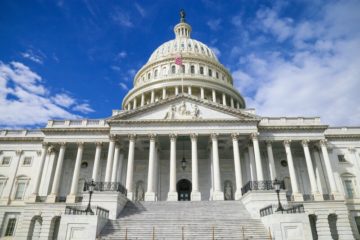The current economic conditions have been described by PricewaterhouseCoopers’ (PwC) UK economic analysts as the “new normal”. It’s a period of high uncertainty, subdued growth and volatile commodity prices. Put climate change in the mix and it is business as unusual.
If the findings of this year’s Carbon Disclosure Project’s (CDP) Global 500 report are anything to go by, we had better get used to it. Even if we took a positive outlook on economic growth, the implications of this year’s report are that while growth might be good news for the economic environment, it is less encouraging for the physical one.
Fewer than half of responding companies in this year’s report show a decline in their emissions solely attributable to emission reductions activities. The economic slowdown led to staff reductions, closure of plants, offices and shops, reductions in output, manufacturing and business travel, not to mention corporate and consumer spending.
So, while the recession has been good for carbon emissions, it is the right result for the wrong reasons.
Companies are making short-term operational or efficiency investments to reduce emissions but are holding back on longer-term capital investments. Underlying technology, investment or strategy issues have yet to be addressed wholesale.
Any economic recovery will be matched by a bounce-back in emissions as well and with it we are seeing the goal of limiting climate change to 2°C slipping further out of reach.
In fact, as discussed in our Low Carbon Economy Index, we believe governments and business should start building 4°C and even 6°C scenarios into their forward planning.
FAST-TRACK CLEAN TECH
In fairness to business, companies are responding as best they can in the current legislative and regulatory environment.
In their responses to CDP, 49 per cent of companies state that regulation is an important driver of corporate action. And regulatory uncertainty is a barrier to action. CEOs are rational people. They need investment-grade policies, at a national level, to get backing for the kind of game-changing low-carbon investments needed.
This is where Singapore can play an important role in the global sustainability and climate change agenda.
With the right policies and incentives, the upheaval thrown up by the current uncertain economic climate and regulatory environment might allow Singapore to fast-track its development of clean and renewable technologies in the areas of energy, food and water, by attracting even cleaner tech firms to set up their operations here.
The Singapore Government has projected that by 2015, the clean energy industry could contribute S$1.7 billion to the nation’s gross domestic product and create 7,000 jobs across a broad range of areas, including solar power, fuel cells, wind power, energy efficiency and carbon services.
They have done a remarkable job of initiating a programme for attracting renewable energy and clean tech companies to base their operations here. But to achieve their ambition, they will need to continue this programme with an integrated mix of public and private initiatives including R&D support; policies to allow development and testing of more new technologies in Singapore; and financial incentives, to name a few.
With the global population expected to hit eight billion by 2030, I expect the demand for expertise in clean tech and energy efficiency, particularly as climate and energy security issues escalate, to rise exponentially as nations struggle to provide their citizens with the basic needs of energy, water, sanitation and food. The issues extend well beyond clean and renewable energy.
Singapore, compared to many other nations, has already set out its stall to be a leader in these sustainability issues. The opportunity that lies ahead for Singapore is to attract and nurture industries that will deliver high-value and specialised jobs across the range of clean-tech industries well into the foreseeable future. And in so doing, enable our global society to transform to a world of business as unusual.
Malcolm Preston is the Global Head and UK leader of sustainability and climate change at PricewaterhouseCoopers. He was in Singapore as one of the speakers at the recent Bloomberg Businessweek Global Green Summit.
Copyright 2012 MediaCorp Pte Ltd | All Rights Reserved


